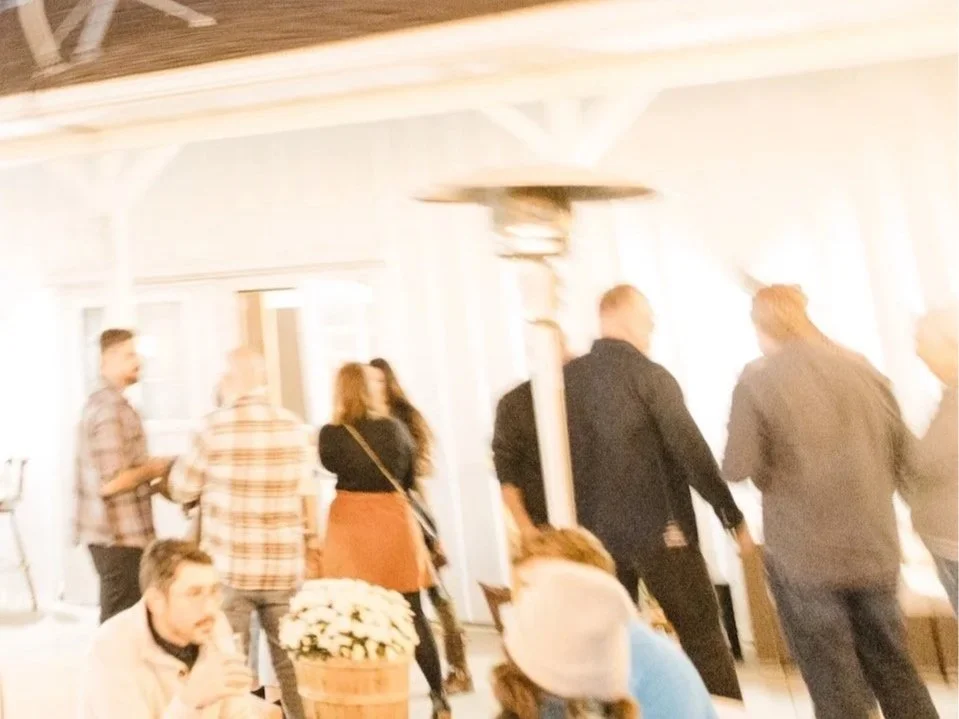The Life of Faith
An Apprenticeship in Celebration
If you’ve read All A Lark, you’re already seeing the Father Jesus revealed and the faith He actually gave us. If not, start there—this series works best when that good news is in your bloodstream.
And once it is, the next question hits fast:
Okay… so what does it look like to follow Jesus?
For many of us, the answers we were given never matched what Jesus revealed. We were trained to believe following Him meant a life-sentence of sermons, studies, and serving on Sundays—a structure Jesus never created, and one that quietly chokes out the life faith was meant to bring.
We were trained for seriousness, not joy.
Performance, not presence.
Improvement, not trust.
So let’s begin where faith actually began.
The first Christians believed the gospel wasn’t conditional news—it was finished news. Not the announcement that something might happen if we believe just right, but that something already has happened.
That’s the difference between religion and relief.
Religion says, “You can invite Jesus into your life.”
The gospel says, “Jesus has already invited you into His.”
Grace, in other words, is a lark—a joke on religion played by a God who never followed our rules. Miss the punchline, and you’ll treat faith like a business plan for holiness instead of an invitation to a party already underway.
This Is Not That exists to help you live that truth around your table.
Why Celebration Matters
If the gospel is fixed news, then celebrating it is the only thing left to do.
And celebration isn’t denial in hard times—it’s holy defiance. It’s learning to laugh again in a world obsessed with proving itself.
That’s why Jesus’ first miracle wasn’t raising the dead or calming a storm. It was keeping the wine flowing. He didn’t give lessons on moderation; He saved a party. And in doing so, He revealed what God’s kingdom actually looks like—more joy than judgment.
Here’s the truth:
you can’t celebrate and control at the same time.
You can’t rest and strive in the same breath.
Joy requires trust.
And that brings us to what discipleship really is.
Discipleship isn’t a path to becoming impressive. It’s a path toward honesty—learning to tell the truth about ourselves in the presence of grace, and practicing faith in what is true even when our lives don’t yet reflect it.
And the reason this matters is simple: being a disciple of Jesus is not a project of self-improvement. It’s learning—again and again—to trust who He already is for us all.
That’s why the Church Jesus started isn’t a branded organization with programs. It’s a global movement of ordinary people learning to trust Jesus—right where they are.
These distinctions matter. Because you can’t institutionalize grace without killing it. And you can’t market freedom without losing it.
Why This Changes Everything
If the gospel is fixed news, then celebration is how we learn to live free. That’s what discipleship looks like in real time—an apprenticeship in celebration.
We rehearse the good news because we keep building ladders to climb. We remind each other grace is still grace when money’s tight, the marriage aches, or the doctor calls. We eat, laugh, cry, forgive—and remember that love has already won.
This isn’t a curriculum. It’s a way of living.
A way of remembering.
A life that treats joy as holy rebellion in a world addicted to religion.
Scripture calls this life salvation, transformation, church, communion, worship, baptism, confession, discipleship, ministry, and leadership. And as you’ll see, they look nothing like what most people mean today.
The Bottom Line
As simple as this sounds, it isn’t easy to walk in what Jesus actually revealed. Not because faith is hard—but because two things keep pulling us back.
First, we’re addicted to self-justification—the need to prove we’re enough. That addiction drives us toward systems that promise control: formalized churches, political tribes, social causes, entrepreneurial identities, and more.
Second, the world is drowning in religious noise. It buries the good news and turns faith into a project to manage instead of a life to enjoy.
This series exists to help you clear the noise, see the truth, and live free.
So dive in—right where you are.
Let joy do what pressure never could.
This is where the freedom faith was meant to bring finds language.
This is how tables of grace replace stages as the normal life of the Church.

